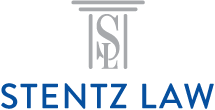If you own or are an owner of a business entity, chances are good that you are subject to the new beneficial owner information reporting requirements of the Corporate Transparency Act (“CTA”). The CTA is part of the Anti-Money Laundering Act provisions of the National Defense Authorization Act of 2021 (“NDAA”). The CTA requires beneficial owners, which are individuals who own or control certain business entities, to report that ownership interest to Financial Crimes Enforcement Network (“FinCEN”).
If your business was formed prior to January 01, 2024, then you have until January 01, 2025, to comply with the ownership information reporting requirements of CTA. If you form a business entity on or after January 01, 2024, and before January 01, 2025, you have ninety days following registration of your business to comply with CTA’s reporting requirements. If you form a business after January 01, 2025, then you must comply with the ownership information disclosure requirements within thirty days of filing with the secretary of state of the state in which you organize your business. CTA requires reporting information to FinCEN on the following individuals associated with the business:
- Ones who directly or indirectly exercise “substantial control” over the reporting company, and
- Ones who directly or indirectly own or control 25% or more of the “ownership interests” of the reporting company, and
- The individual who directly files the document that creates, or first registers, the reporting company and the individual that is primarily responsible for directing or controlling the filing of the relevant document. This third bullet means that the attorney who files your organizational documents must be reported to FinCEN along with the beneficial owners.
Now, there are exceptions to the beneficial ownership information reporting requirements. However, the twenty-three types of entities that are not subject to the reporting requirements of CTA generally are entities that are regulated under some other federal legislation, i.e. banks, credit unions, brokerage firms, and insurance companies. Most corporations, limited liability companies and entities created by filing a document with a secretary of state are included in the definition of a reporting entity under the CTA.
What happens if you choose not to comply?
Well, that is not a good idea. The penalties are stiff. A civil penalty of $500.00 per day may be imposed for each day that a person is in violation of the reporting requirements and a criminal fine of up to $10,000.00 and/or imprisonment of up to two years may be imposed.
What disclosure information is required for reporting companies?
For each reporting entity FinCEN requires 1) the legal name of the business, 2) any trade names or doing business as, d/b/a, or trading as, t/a names, 3) the current street address of the principal place of business, 4) the jurisdiction of formation or registration, and 5) the Taxpayer Identification Number for the business entity.
What disclosure information is required for beneficial owners?
For each individual FinCEN requires 1) the individual’s name, date of birth and residential address, 2) acceptable form of identification, which can be a) valid driver license, b) non-expired identification document issued by a state or local government, or c) non-expired passport, and 3) copy of the acceptable form of identification.
What happens if the beneficial information changes?
You have an obligation to update the information on file with FinCEN with correct information as beneficial ownership information changes.
Why does the U.S. Department of the Treasury, through its FinCEN unit, require this disclosure?
The stated reason is that very few states require disclosure of information about beneficial owners of companies. According to the U.S. Department of Treasury “This lack of transparency allows criminals, corrupt officials, and other bad actors to hide their identities and launder illicit funds through the United States using shell and front companies. This in turn hurts ordinary Americans because the lack of transparency results in an uneven playing field for honest and legitimate U.S. businesses. The inaccessibility of beneficial ownership information also makes it hard for law enforcement to track and prosecute criminal activity.” 1
Who will have access to this information?
The CTA authorizes FinCEN to disclose beneficial ownership information to six types of requesters:
- U.S. Federal agencies engaged in national security, intelligence, and law enforcement activities;
- State, local and Tribal law enforcement agencies with court authorization;
- The U.S. Department of the Treasury;
- Financial institutions conducting legally required customer due diligence, with customer consent to retrieve the information;
- Federal and state regulators assessing compliance of required customer due diligence by financial institutions; and
- Foreign law enforcement agencies who submit qualifying requests through a U.S. Federal agency.
How will your information be protected by FinCEN?
FinCEN states that protecting your information is a top priority. Federal law requires FinCEN to implement protocols, build a secure IT system to store the information, and to establish procedures designed to ensure that only authorized users can access your reported information. The system will be cloud-based.
As with any new business requirements promulgated by governmental entities, it is important to familiarize yourself with the requirements and obligations to ensure that your business is in compliance with all of the many regulatory requirements imposed on your business.
We are ready to help.
Please contact us at Stentz Law for assistance in meeting these new reporting requirements. Call or text us at (614) 956-5945 or reach us through our website at www.stentzlaw.com.
Endnote:
1 “Beneficial Ownership Information Reporting Frequently Asked Questions”, Financial Crimes Enforcement Network, U.S. Department of the Treasury, published March 24, 2023
© Copyright Stentz Law LLC 2024

